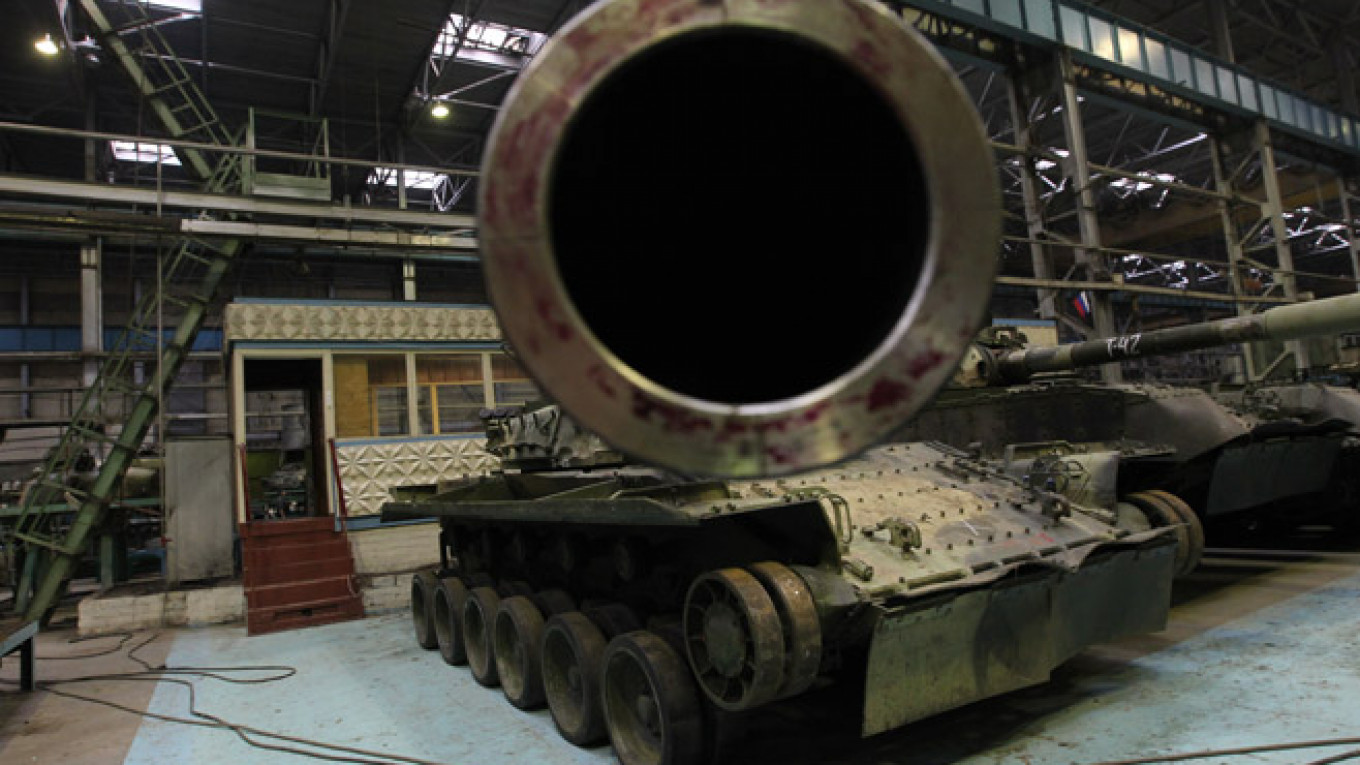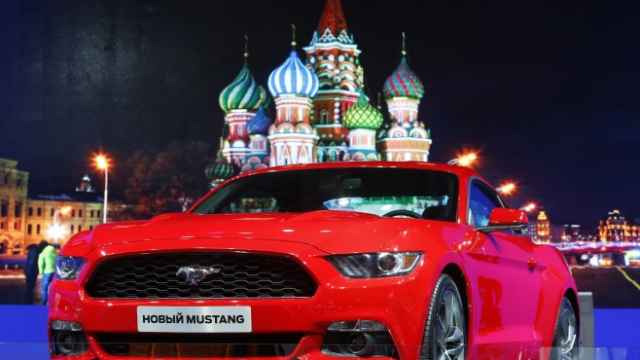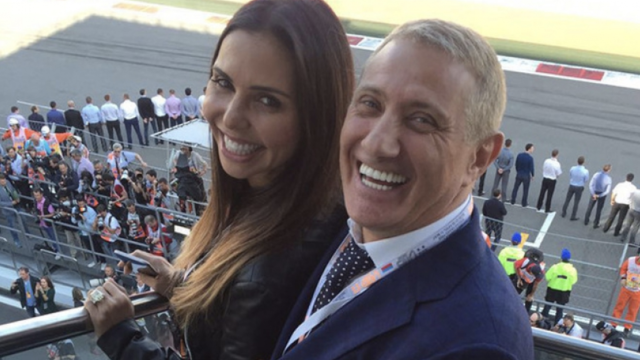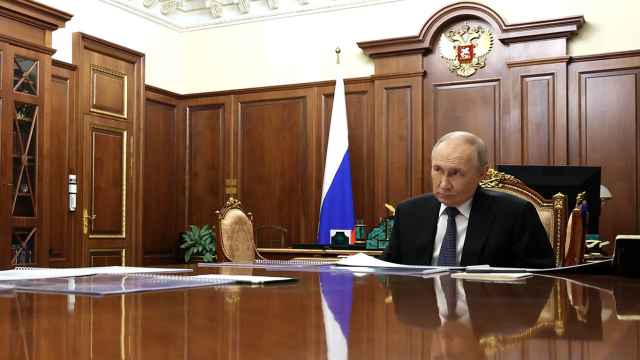Rising industrial production could seem like a rare positive on Russia's somber economic landscape, but the overall growth is hiding a stagnation across most areas of manufacturing, a study released Tuesday by the Higher School of Economics found.
One segment is driving the growth: "production of ships, flying and space vessels, and other means of transportation," including military equipment, the study said, citing data from state statistics agency.
Output of these goods is booming, rising nearly 27 percent year-on-year in the period from January to August, and largely thanks to the appetite of the Russian government.
The government and state-owned companies dominate purchases in this segment, which includes production of railroad equipment, planes, helicopters and submarines. Russia is currently pursuing a $700 billion rearmament program, which moved to the top of the government's list of priorities when the crisis in Ukraine put Moscow on a collision course with the West. The conflict in eastern Ukraine and the sanctions imposed on Russia by the West have cut off Russia's access to foreign components while the risk of military conflict has increased.
As a result, the perceived growth rate in industrial production — which at 1.5 percent in the first half of this year was nearly double Russia's GDP growth — merely mask the stagnation occurring in most Russian industry, the study found.
This one segment — if both increased production of transportation equipment and the mining and processing of raw materials used in their manufacturing are included — could account for 1.3 percentage points of the 1.4 percent in year-on-year manufacturing growth seen in 2014, the study found.
In other words, without growth in this segment, industrial production would have grown by a mere 0.1 percent over the past eight months.
Russia's economy is now on state-sponsored life support. As it struggles to ward off a recession after a sharp slowdown last year, Western sanctions have locked some of the country's biggest companies out of international capital markets and raised the cost of borrowing across the board. Several major banks and oil and gas companies have already requested billions of dollars in state aid.
Manufacturing that depends on private demand has been stagnating since the second half of 2012, and increased military and other transport purchases will not provide the necessary boost, the study concluded.
A Message from The Moscow Times:
Dear readers,
We are facing unprecedented challenges. Russia's Prosecutor General's Office has designated The Moscow Times as an "undesirable" organization, criminalizing our work and putting our staff at risk of prosecution. This follows our earlier unjust labeling as a "foreign agent."
These actions are direct attempts to silence independent journalism in Russia. The authorities claim our work "discredits the decisions of the Russian leadership." We see things differently: we strive to provide accurate, unbiased reporting on Russia.
We, the journalists of The Moscow Times, refuse to be silenced. But to continue our work, we need your help.
Your support, no matter how small, makes a world of difference. If you can, please support us monthly starting from just $2. It's quick to set up, and every contribution makes a significant impact.
By supporting The Moscow Times, you're defending open, independent journalism in the face of repression. Thank you for standing with us.
Remind me later.






